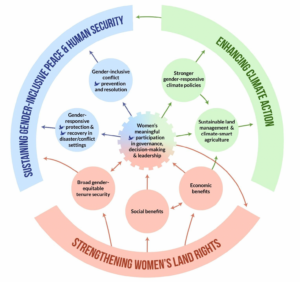Agricultural systems, and the roles, rights and responsibilities of men and women who farm, differ according to geographic and cultural context. Ester Boserup’s classic study of 1970 made a great contribution to understanding women’s role in development by recognizing women as important economic actors. Boserup was the first to define female farming systems (shifting cultivation and food production) and male farming systems (settled, plow-based cultivation and private land tenure), and her influence is still seen today through the widespread recognition of the complexity of agricultural systems and their gendered variations.




